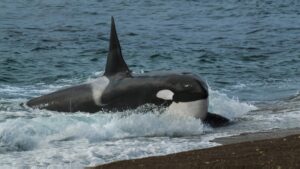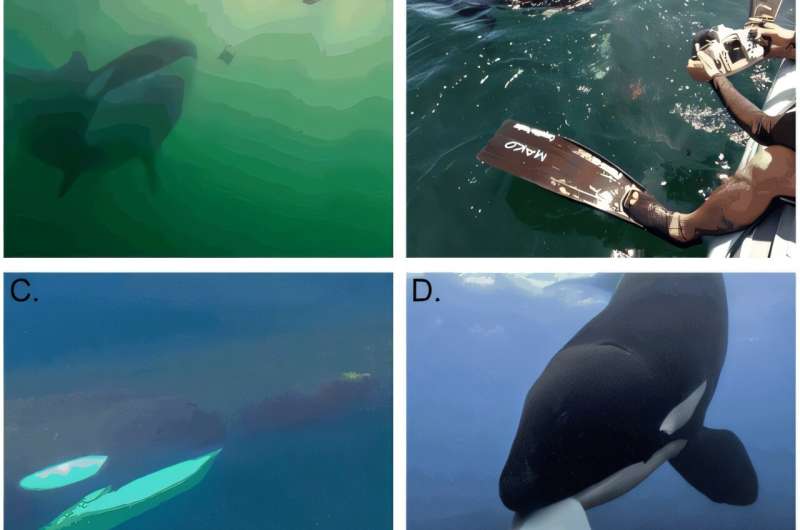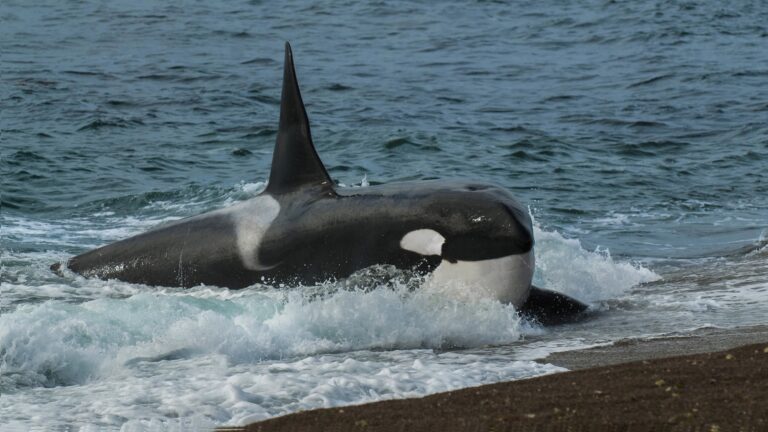In an intriguing display of interspecies interaction, orcas, also known as killer whales, have been observed offering food to humans in the wild. This behavior, reminiscent of domestic pets presenting gifts to their owners, has been documented in a study published in the Journal of Comparative Psychology. The research, conducted by scientists from Canada, New Zealand, and Mexico, details 34 such interactions over two decades, occurring in diverse marine environments from California to New Zealand, Norway, and Patagonia.
“Orcas often share food with each other—it’s a prosocial activity and a way that they build relationships with each other,” explained Jared Towers, the study’s lead author from Bay Cetology in British Columbia, Canada. “That they also share with humans may show their interest in relating to us as well.”
Understanding Orca Behavior
The study involved meticulous documentation and analysis of these interactions, with researchers Jared Towers, Ingrid Visser, Ph.D., of the Orca Research Trust in New Zealand, and Vanessa Prigollini of the Marine Education Association in La Paz, Mexico, leading the effort. The incidents were diverse: in 11 cases, humans were in the water; in 21, they were on boats; and in two, they were on the shore. Some interactions were captured on video or in photographs, while others were recounted in interviews.
To qualify for the study, each incident had to meet strict criteria: the orcas had to approach the humans independently and drop the food item in front of them. Notably, in all but one case, the orcas waited to observe the humans’ reactions, and in seven instances, they made repeated attempts to offer the food after initial refusals.
The Significance of Food Sharing
Food sharing among animals is often linked to social bonding and relationship building. Domesticated animals like dogs and cats are known to offer food to humans, but this research provides some of the first detailed accounts of such behavior in non-domesticated animals. Orcas, known for their intelligence and social nature, use food sharing as a means to strengthen ties with both kin and unrelated individuals.
“Offering items to humans could simultaneously include opportunities for killer whales to practice learned cultural behavior, explore or play, and in so doing, learn about, manipulate, or develop relationships with us,” the researchers noted.
Given their advanced cognitive abilities and cooperative nature, the researchers suggest that these interactions could serve multiple purposes, from cultural expression to playful exploration.
Implications and Future Research
This study opens new avenues for understanding the complex social behaviors of orcas. As highly intelligent creatures, their interactions with humans could offer insights into their cognitive processes and social dynamics. The findings challenge the traditional view of human-animal interactions, suggesting a potential for deeper connections.
Future research could explore the implications of these behaviors further, examining how orcas perceive humans and what motivates them to engage in such interactions. Understanding these dynamics could enhance conservation efforts and foster greater appreciation for these majestic marine mammals.
As researchers continue to delve into the mysteries of orca behavior, these findings highlight the importance of preserving their natural habitats and ensuring their survival. The study not only enriches our understanding of orcas but also underscores the potential for meaningful connections between humans and the natural world.






















